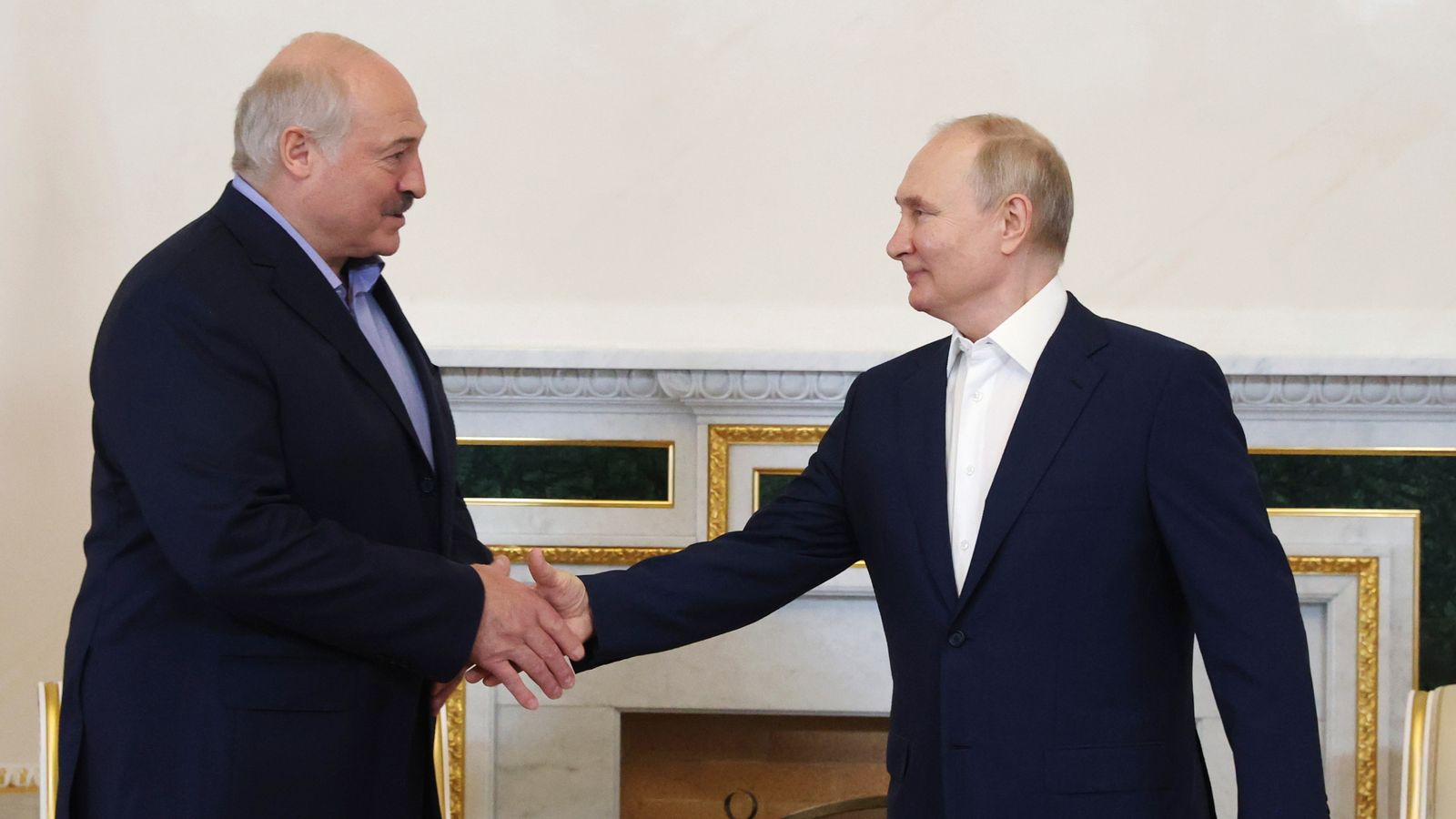Concerns have been raised after Belarus claimed it has completed receiving tactical nuclear weapons from Russia.
Russia has completed its shipments of tactical nuclear weapons to Belarus, according to the country’s president, raising international concern.
At a meeting of a Moscow-led economic bloc in St Petersburg, Alexander Lukashenko said the deliveries were finished in October – though he didn’t say how many or where they have been deployed.
Tactical nuclear weapons, which are designed for use on the battlefield, have a short range and a low yield compared with much more powerful nuclear warheads fitted to long-range missiles.
They can have a yield as small as about 1 kiloton, significantly less than the 15 kiloton-yield of the US bomb used on Hiroshima during the Second World War.
Russia said it would maintain control over the weapons it sends to Belarus.
Mr Lukashenko has said hosting Russian nuclear weapons in Belarus is meant to deter NATO-member Poland, which supports Ukraine with military, humanitarian and political backing.
The devices are compact and can be discreetly carried on a truck or plane.
Aliaksandr Alesin, an independent Minsk-based military analyst, said the weapons use containers that don’t emit radiation and could have been moved to Belarus without the West knowing.
“They easily fit in a regular Il-76 transport plane,” he said in July, when further reports of shipments were made.
“There are dozens of flights a day, and it’s very difficult to track down that special flight. The Americans could fail to monitor it.”
Read more:
What could happen if Russia wins war in Ukraine?
Navalny found in one of Russia’s toughest prisons
Belarus has 25 underground facilities – built during the Cold War – for nuclear-tipped intermediate-range missiles that can withstand missile attacks, Mr Alesin added.
Only five or six such depots could actually store tactical nuclear weapons, he said, but the military operates at all of them to throw Western intelligence off.

Emily Foster is a globe-trotting journalist based in the UK. Her articles offer readers a global perspective on international events, exploring complex geopolitical issues and providing a nuanced view of the world’s most pressing challenges.








